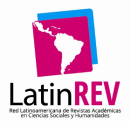Investigação em ciências sociais em contextos de migração e vulnerabilidade
reflexões éticas e metodológicas sobre o trabalho de campo em colaboração
DOI:
https://doi.org/10.54871/cl4c500nPalavras-chave:
metodologia, dilemas éticos, investigação em colaboração, migração, recomendaçõesResumo
Neste artigo, discutimos e reflectimos sobre as considerações e os desafios éticos e metodológicos que surgiram durante a nossa experiência como parte de uma equipa de investigação que realizava trabalho de campo com populações migrantes da América Central e do Haiti em Tijuana, no México. Devido ao contexto de que essas mobilidades são consequências de vulnerabilidades acumuladas, incluindo experiências anteriores de violência e trauma, foi exigida uma reflexão coletiva sobre a abordagem nas entrevistas feitas com essas pessoas migrantes. Também adaptamos os nossos métodos e objetivos de estudo em relação aos protocolos relacionados com a COVID-19 e à necessidade de ter acesso aos migrantes tanto virtualmente quanto presencialmente nos centros de atendimento. As aprendizagens e reflexões que compartilhamos pretendem oferecer lições e recomendações para estudantes, pesquisadores ou outros autores que desenvolvam trabalho colaborativo com populações.
Downloads
Referências
Boavida, Ana María y Ponte, João Pedro (2011). Investigación colaborativa: Potencialidades y problemas. Revista de Educación y Pedagogía, 23. https://revistas.udea.edu.co/index.php/revistaeyp/article/view/8712
Brigden, Noelle (2022). Trauma-Informed Research Methods: Understanding and Healing Embodied Violence. En A. D. J. Petillo y H. R. Hlavka (eds.), Researching Gender-Based Violence (pp. 144-158). Nueyva York: NYU Press. https://www.jstor.org/stable/jj.4493292.16
Campbell, Rebecca; Goodman-Williams, Rachael; Engleton, Jasmine; Javorka, McKenzie y Gregory, Katie (2023). Open science and data sharing in trauma research: developing a trauma-informed protocol for archiving sensitive qualitative data. Psychological Trauma: Theory, Research, Practice, and Policy, 15(5), 819-828. https://doi.org/10.1037/tra0001358
Contreras, Oscar y París, María Dolores (2021). Tijuana, Baja California, ciudad de destino de la caravana migrante 2018-2019. En M. Dolores París, Laura Velasco, y Camilo Contreras (eds.), Caravanas migrantes y desplazamientos colectivos en la frontera México-Estados Unidos (pp. 51-76). Tijuana: El Colegio de la Frontera Norte.
Coutin, Susan (2005). Being En Route. American Anthropologist, 107(2), 195-206. https://doi.org/10.1525/aa.2005.107.2.195
Cuenca, Adriana y Schettini, Patricia (2020). Los efectos de la pandemia sobre la metodología de las ciencias sociales. Escenarios, 32. https://revistas.unlp.edu.ar/escenarios/article/view/10844
Díaz de León, Alejandra, y Yrizar Barbosa, Guillermo (2021). Diseño de investigación-acción participativa: Ethos en espacios de ayuda a migrantes en México. Estudios Sociológicos de El Colegio de México, 39(116), 599-614. https://doi.org/10.24201/es.2021v39n116.2184
Dietkus, Rachael (2022). The Call for Trauma-Informed Design Research and Practice. Design Management Review, 33(2), 26-31. https://doi.org/10.1111/drev.12295
Eguiluz, Itzel; Díaz de León, Alejandra; González Zepeda, Carlos y Trejo Peña, Alma (2022). Repensar, reinventar y reflexionar la investigación cualitativa en tiempos de covid-19: El caso de los estudios migratorios. Caleidoscopio - Revista Semestral de Ciencias Sociales y Humanidades, 25(46). https://doi.org/10.33064/46crscsh3346
Fernández-Guzmán, Eduardo (2021). El inédito contexto de la migración internacional en tiempos de COVID-19. Revista Facultad Nacional de Salud Pública, 39, e346872. https://doi.org/10.17533/udea.rfnsp.e346872
Gómez Johnson, Cristina y Espinosa Moreno, Fernanda (2020). Transformaciones en las migraciones contemporáneas en México (2000-2019). Acercamiento a las violencias y solicitudes de refugio. Estudios Políticos, 0(58), 17-44. https://doi.org/10.17533/udea.espo.n58a02
González Zepeda, Carlos y Eguiluz, Itzel (2021). Reconfiguraciones espaciales: Las migraciones ante la crisis de la COVID-19. (Trans) Fronteriza: Boletín del Grupo de Trabajo Fronteras: movilidades, identidades y comercios, 4, 35-41.
Rincón, Elvira (2018). La sociedad civil organizada responde al impacto de políticas públicas: Las políticas sociales como factor causal del rol asistencialista de organizaciones de la sociedad civil (OSC) pro migrantes en Tijuana. Gestión y Política Pública, XXVII(1), 181-209. https://www.redalyc.org/articulo.oa?id=13356118006
Hamui Sutton, Liz y Vives Varela, Tania (2021). Trabajo de campo virtual en investigación cualitativa. Investigación en educación médica, 10(37), 71-77. https://doi.org/10.22201/fm.20075057e.2021.37.20271
Hernández-Hernández, Oscar (2021). Laboratorio de Estudios sobre Violencia en la Frontera. Tijuana: El Colegio de la Frontera Norte.
Hernández-López, Rafael y Lucero, Chantal (eds.) (2021). Vulnerabilidad en tránsito: Peligros, retos y desafíos de migrantes del norte de Centroamérica a su paso por México. Tijuana: El Colegio de la Frontera Norte.
Hernández-López, Rafael y Ramos-Rojas, Diego-Noel (2022). Pandemia, seguridad humana y migración: Gestión de la movilidad humana desde México. URVIO. Revista Latinoamericana de Estudios de Seguridad, 32. https://doi.org/10.17141/urvio.32.2022.4994
Isobel, Sophie (2021). Trauma-informed qualitative research: Some methodological and practical considerations. International Journal of Mental Health Nursing, 30(S1), 1456-1469. https://doi.org/10.1111/inm.12914
Leake, Eric (2019). Empathy as Research Methodology. En Pranee Liamputtong (ed.), Handbook of Research Methods in Health Social Sciences (pp. 237-252). Singapur: Springer. https://doi.org/10.1007/978-981-10-5251-4_65
Maiter, Sarah; Simich, Laura, Jacobson; Nora y Wise, Julie (2008). Reciprocity: An ethic for community-based participatory action research. Action Research, 6(3), 305-325. https://doi.org/10.1177/1476750307083720
Mckee Irwin, Robert (2020). Cruel deportations: Masculinities, infrapolitics. Anclajes, 24, 45-66. https://doi.org/10.19137/anclajes-2020-2434
Orozco, Manuel y Yansura, Julia (2015). Centroamérica en la mira: La migración en su relación con el desarrollo y las oportunidades para el cambio. Buenos Aires: Editorial Teseo. http://www.asies.org.gt/download.php?get=2015centroamerica_enla_mira.pdf
Petrone, Robert y Rogers, Christine (2021). From Producing to Reducing Trauma: A Call for “Trauma-Informed” Research(ers) to Interrogate How Schools Harm Students. Educational Researcher, 50 (8). https://doi.org/10.3102/0013189X211014850
Rojas Wiesner, Martha (2017). Precariedades y vulnerabilidades en la migración. Notas para el análisis de la situación de mujeres centroamericanas en México. Astrolabio: Revista Internacional de Filosofía, 0(19). https://raco.cat/index.php/Astrolabio/article/view/318865
Silva, Aida (2019). Mapping Migration in Tijuana. Henry J. Leir Institute, Tufts University. https://doi.org/10.13140/RG.2.2.13732.94089
Slack, Jeremy y Heyman, Josiah (2020). Asylum and Mass Detention at the U.S.-Mexico Border during COVID-19. Journal of Latin American Geography. https://doi.org/10.1353/lag.0.0144
Slack, Jeremy y Martínez, Daniel (2021). Postremoval Geographies: Immigration Enforcement and Organized Crime on the U.S.–Mexico Border. Annals of the American Association of Geographers, 111(4), 1062-1078. https://doi.org/10.1080/24694452.2020.1791039
Torre, Eduardo (2021). Caravanas: sus protagonistas ante las políticas migratorias. Tijuana: El Colegio de la Frontera Norte.
Wilson, Elena (2019). Community-Based Participatory Action Research. En Pranee Liamputtong (ed.), Handbook of Research Methods in Health Social Sciences (pp. 285-298). Penrith: Springer Singapore. https://doi.org/10.1007/978-981-10-5251-4_87
Zapata-Barrero, Ricardo y Yalaz, Evren. (2018). Introduction: Preparing the Way for Qualitative Research in Migration Studies. En Ricardo Zapata-Barrero y Evren Yalaz (eds.), Qualitative Research in European Migration Studies (pp. 1-8). Springer International Publishing. https://doi.org/10.1007/978-3-319-76861-8_1
Downloads
Publicado
Como Citar
Edição
Seção
Licença
Copyright (c) 2023 Sandra Milena Munevar-Meneses, Joseph Wiltberger, Juan Carlos Hernández Arauz, Daniel Durán Macías

Este trabalho está licenciado sob uma licença Creative Commons Attribution-NonCommercial-ShareAlike 4.0 International License.








